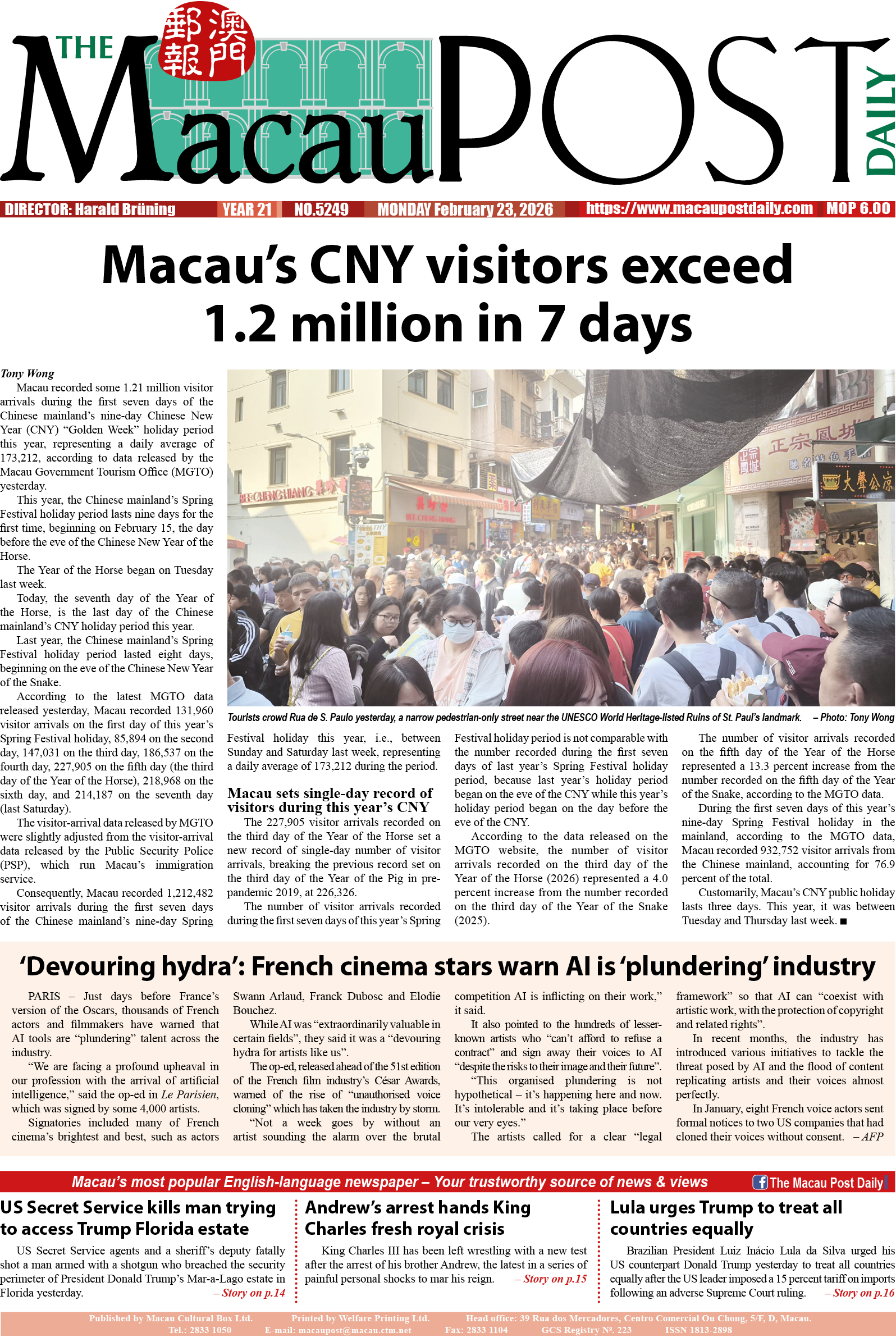A 70-year-old unvaccinated woman suffering from underlying diseases died of the novel coronavirus disease on Sunday, which came after no COVID-19 fatalities had been recorded in Macau for six consecutive days.
The fatality recorded on Sunday, which raised Macau’s official COVID-19 death toll to 124, was announced in a statement by the Novel Coronavirus Response and Coordination Centre yesterday.
Yesterday’s statement also announced that Macau recorded 67 COVID-19 infections on Sunday, 14 up from the 53 infections reported on Saturday.
According to yesterday’s statement, one new COVID-19 patient was admitted to the public Conde de São Januário Hospital Centre on Sunday for treatment.
Consequently, a total of 182 new COVID-19 patients were admitted to treatment facilities between May 1 and June 18.
Official data indicate that Macau’s current peak of COVID-19 infections, which started early last month, is now easing.
Before the new fatality, i.e., Macau’s 124th official COVID-19 death, was recorded on Sunday, the city had not recorded any COVID-19 fatalities for six days in a row, from June 12 to 17.
Before the previous COVID-19 fatality was recorded on June 11, Macau had not recorded any COVID-19 fatalities for 11 consecutive days, from May 31 to June 10.
After the first peak of widespread COVID-19 infections that hit Macau in December last year subsided in the second half of January, that peak’s last fatality was recorded on February 2, i.e., Macau’s 121st official COVID-19 death. Afterwards, Macau had not recorded any COVID-19 fatalities for 116 days in a row, before a fatality was recorded again on May 30, as the city began to be affected by a new peak of COVID-19 infections early last month.
Observers have noted that thanks to the population’s relatively strong hybrid COVID-19 immunity created by a combination of the city’s first peak of widespread infections and population-wide vaccinations, the level of Macau’s current and new peak of COVID-19 infections that started early last month is much less intense than the level of its first peak of widespread infections that came after the local government abandoned its long-running dynamic zero-COVID approach on December 8 last year.







